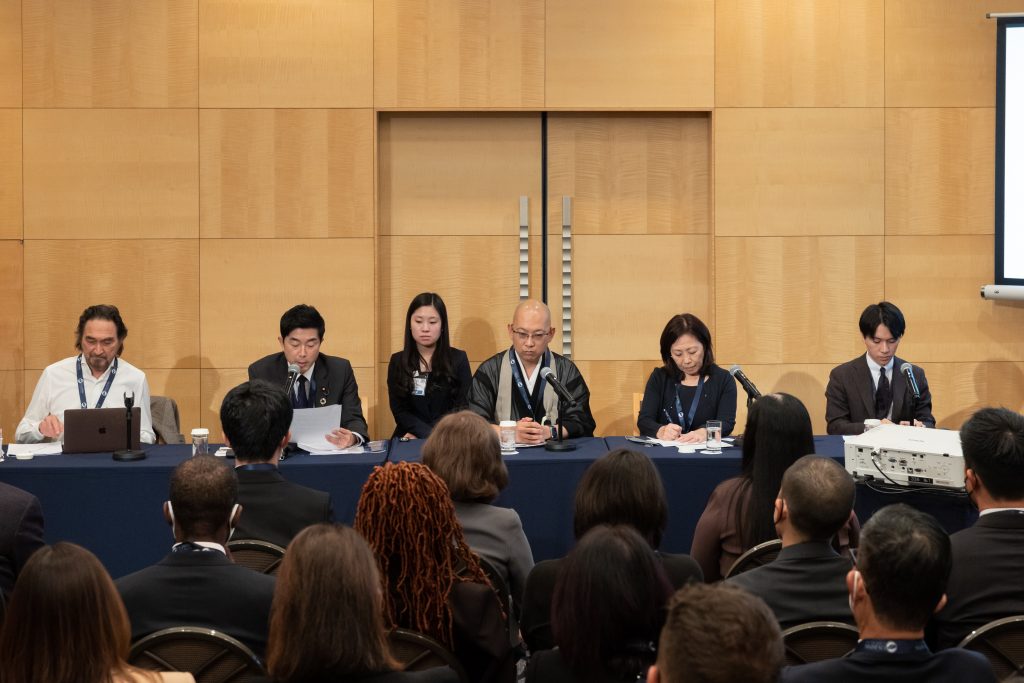
On October 28, the USJC Mental Wellness Affinity Group held a breakout session titled “Leadership and Mental Wellness,” at the Annual Conference in Tokyo. The session addressed insights from deep Japanese traditional thoughts to new mental wellness initiatives that are taken in both the United States. and Japan. In addition, the session included perspectives from individuals in policy, business and academia among others. The discussion began and was moderated by Dr. Stephen Murphy-Shigematsu (Psychologist and author at Stanford University), who set the stage for the audience to envision how public awareness of the importance of mental wellness has significantly increased recently and how understanding mental wellness can lead to stronger leadership in the United States and Japan.
Member of House of Representatives Hideki Makihara, (Former State Minister, Ministry of Health, Labor and Welfare at the National Diet), touched on the measures taken by the Japanese government over many years to address mental wellness and how he was part of the Former Prime Minister Abe’s initiative to promote work-style reform as the suicide of a female Dentsu employee due to overwork became a major social issue in 2015.
Reverend Daiko Matsuyama (Deputy Head Priest at Taizo-in Zen Buddhist Temple in Kyoto), discussed the relationships between Buddhist teachings and mental wellness. Rev. Matsuyama shared his experiences working in Bhutan and commented on his view of happiness. Rev. Matsuyama continued by emphasizing the need to be mindful of our expectations and our tendency to compare ourselves with others.
Dr. Tazuko Shibusawa (Executive Officer at Shibusawa Eiichi Memorial Foundation and Former Associate Dean & Director, Master of Social Work Program at New York University) gave remarks on mindfulness and leadership, which were extremely tailored to the central theme of the session.
Mr. Koki Ozora, (Founder and CEO at Anata no Ibasho “A Place for You”), discussed his experiences of founding Anata no Ii Basho and how the worldwide system of emotional support for the Japanese speakers’ mental health around the world continues to be a valuable place. In addition, he mentioned the pros and cons of utilizing AI and chatbots to identify people in deep crisis via online platforms.
The Mental Wellness Affinity Group wants to express sincere gratitude toward every person who played key roles in planning the breakout sessions. Special thanks to the TOMODACHI Sumitomo Scholars for volunteering their time onsite.
If you are interested in getting involved in the Mental Wellness Affinity Group, please email the Group via [email protected].
More photos can be found here.